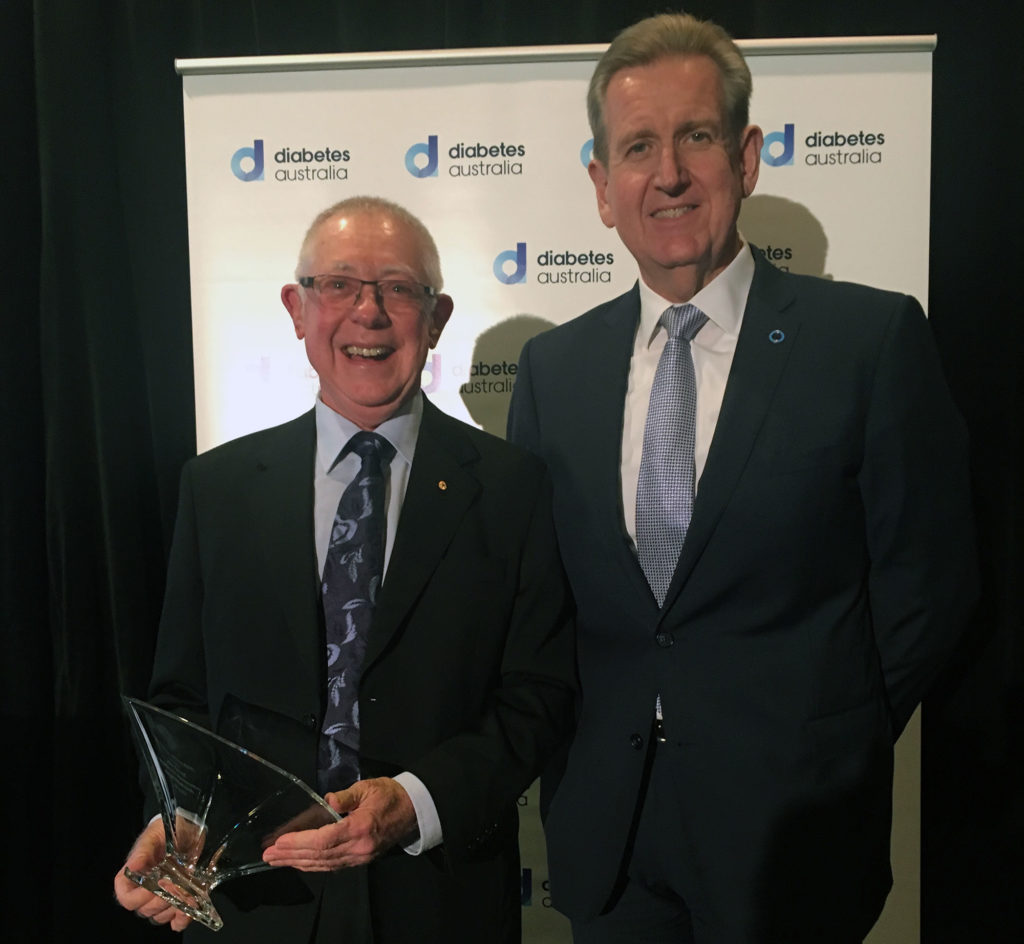Former PSA National President John Bell honoured for his contribution to diabetes management
Friday 19 July 2019
The Pharmaceutical Society of Australia (PSA) congratulates former National President and Life Fellow John Bell AM on receiving Diabetes NSW & ACT’s most prestigious honour – the Sir Kempson Maddox Award.
PSA NSW Branch President Professor Peter Carroll said the award was further recognition of John’s extensive contribution not only to the pharmacy profession but the broader healthcare system.
The award, established in honour of Diabetes NSW & ACT’s founder, acknowledges people who have made a significant contribution to the diabetes movement.
“Since establishing the community pharmacy John Bell Pharmacist Advice in Woollahra in 1969, John has been working to not only improve the health of his local community, but also advocating for better national and international approaches to healthcare,” Professor Carroll said.
“As a former Board member of Diabetes NSW, John has spent many years working to raise awareness of diabetes prevention and treatment strategies.
“He has been a strong advocate for community pharmacists to take a greater role in diabetes management.”
John said that although diabetes was the fastest growing chronic condition worldwide, it can be effectively managed with a combination of lifestyle modification and appropriate pharmacological therapy.
“With more than 300 people diagnosed with diabetes in Australia every day, pharmacists have a critically important role to play in increasing awareness, identifying symptoms and assisting with strategies to reduce the risk of complications,” he said.
John has taken an active role in international pharmacy for more than 30 years, including eight years as Vice President of the Federation Internationale Pharmaceutique (FIP). In 2004 he received FIP’s highest honour, the Andre Bedat Award for services to international pharmacy practice.
John was made a Member of the Order of Australia in 1993 for services to pharmacy and in 2017 he was awarded PSA’s Lifetime Achievement Award for his contribution to the pharmacy profession and the Australian and international communities.
While still an active partner in his pharmacy practice, John currently teaches at the Graduate School of Health at the University of Technology Sydney, and serves on PSA’s NSW Branch Committee.
“PSA congratulates John on receiving the Sir Kempson Maddox Award and his ongoing commitment to diabetes management, the pharmacy profession and improving patient health outcomes,” Professor Carroll said.
Media contact:
Carly Lusk
Public Affairs Officer
0487 922 176

